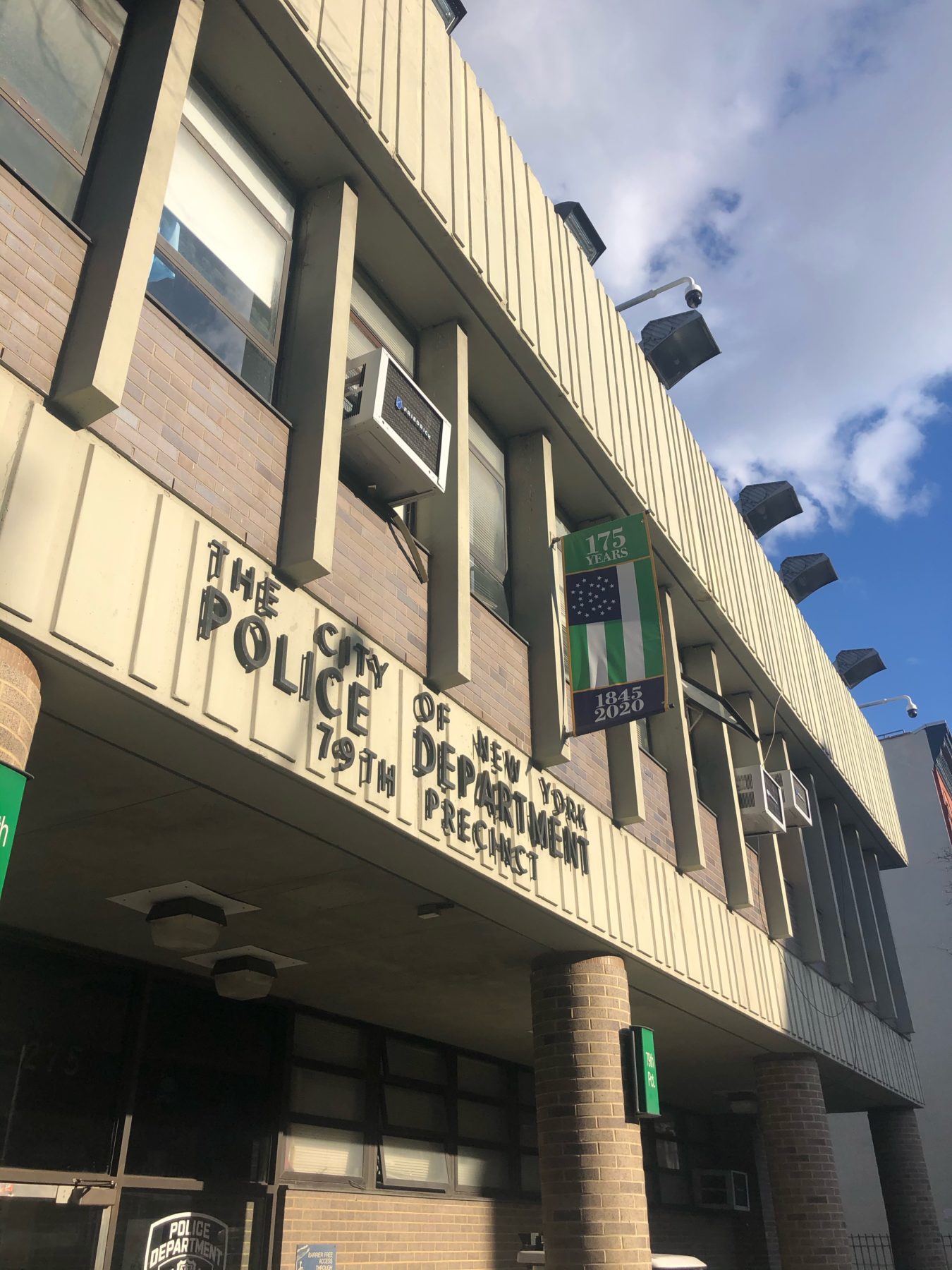After a year of pandemic and protest, experts are beginning to warn of a looming mental health crisis among police officers. Some have begun to take action to raise awareness of the issues officers face and to make additional counseling and other resources available.
The pressures of the past year have taken a heavy psychological toll on many officers, said Tom Coghlan, a retired police officer and the founder of Blue Line Psychological Services, a New York City-based clinic that provides mental health treatment primarily to police officers.
“In my practice I have seen a significant uptick in anxiety-related issues specific to COVID and to the defund the police movement,” he said. “I’ve seen an uptick in feelings of hopelessness, which are absolutely robust predictors of suicidal thinking.”
For the New York City Police Department, the pandemic was preceded by a year of staggering loss. Ten NYPD officers took their own lives in 2019, a spate of tragedies that prompted former Police Commissioner James O’Neill to acknowledge in a tweet that his department was facing a “mental health crisis” and that “the NYPD and the law enforcement profession as a whole absolutely must take action.”
The crisis in New York City was part of a national trend, said Karen Solomon, president of Blue H.E.L.P. — an organization that tracks police suicides across the U.S. “Suicides were pretty steady until 2019,” she said. “In 2019 they ricocheted up.”
Data from Blue H.E.L.P indicates that 183 U.S. police officers committed suicide in 2018. The number jumped to 239 in 2019, roughly a 30% rise.
It isn’t completely clear what caused the 2019 rise. Some experts speculate it was the culmination of years of public animosity towards law enforcement, possibly beginning with the 2014 killing of Michael Brown in Ferguson, Missouri. Others argue that increased accountability and transparency measures within police departments have made the job of policing more difficult and more stressful.
Whatever the reason, police suicides declined in New York – and across the U.S. – in 2020, in part through the efforts of groups like New York City’s Police Organization Providing Peer Assistance (POPPA). At POPPA, officers are given the opportunity to speak one-on-one with other officers about mental health.
“It’s cops helping cops,” said John Petrullo, POPPA’s executive director. “We’ll set up a meeting, go sit down, have a cup of coffee, talk to them, and get them into mental health services if that’s what’s needed. And it’s been working.”
But some see the 2020 drop as temporary. “I would like to say it’s because of the increase in services and the decrease in stigma, but my honest opinion is that cops were busy in 2020,” said Sherri Martin, director of wellness services at the National Fraternal Order of Police. “They were busy with a pandemic. They were busy with protests, and they did not have time to stop and think about what’s going on in their own lives. I fear that we may see the number be higher again in 2021 than it was in 2020.”

The past year has been a “perfect storm” for officers, said Martin. “The number one fear of officers during COVID is infecting their families. The second thing that creates stress for them the most is enforcing restrictions on the public.” And months of social unrest, she added, has “created a diminishment of interest in doing the job, [and] more of a depressed, discouraged state.”
Like Martin, Petrullo fears that the worst is yet to come. “We’re expecting to see increased volume coming up once this is all over,” he said. “That was true after 9/11. We didn’t start getting the more serious calls [until] they tried to deal with it themselves and then finally realized it’s not manageable for them on their own.”
Despite these alarming trends, Solomon of Blue H.E.L.P cited reasons to feel hopeful for the future. Her organization began gathering data on police suicides in 2016 and has made an ongoing effort to heighten public awareness about police suicides. That effort, said Solomon, is acting as a kind of a catalyst for mental health initiatives within the law enforcement community.
“The reason this has become a national issue is because someone started tracking it and saying, ‘look at how big this problem is,’ and they were forced to look at it,” said Solomon. “Before we started collecting the data, people didn’t really pay attention to suicide; they brushed it under the rug.”
Blue H.E.L.P. has also been working with the FBI to develop a more robust system for tracking numbers of police suicides across the Unites States, an initiative that began last year after the passage of the Law Enforcement Suicide Data Collection Act (LESDCA).
The collaboration with federal authorities “is a monumental step forward in recognizing the emotional toll the job takes on an officer, and [provides] hope for families who have lost officers to suicide,” Blue H.E.L.P. said in a recent press release.
Martin of the Fraternal Order of Police has also been encouraged by the number of mental health-related events, conferences and conversations currently on offer for the law enforcement community. The International Association of Chiefs of Police annual Officer Safety and Wellness Symposium, for example, took place remotely in March and included several sessions on officer suicide. The Sixth International Conference on Law Enforcement and Public Health in late March also committed significant time to officer safety, wellness and suicide prevention.
Meanwhile, organizations are busy developing new ways to expand the conversation around mental health in law enforcement and provide care to police officers in a post-pandemic world.
Last year, Blue H.E.L.P. officially designated September 26 as National Law Enforcement Suicide Awareness Day. The nonprofit is also in the process of building a physical monument in honor of the first responders and veterans lost to suicide in Texas.
POPPA has also been expanding its repertoire of strategies — including mindfulness meditation classes delivered via Zoom — for helping officers cope with stress, anxiety, depression and other mental health issues, said Petrullo. And as soon as social distancing and public health mandates allow, he said the organization will lead a “self-care weekend,” where officers will be able to hike, watch live comedy and even learn about the “Five Love Languages” — drawing upon the famous 1992 self-help book — to help them improve relationships with spouses or partners.
“When you have a psychologically healthy cop, it benefits everybody,” said Petrullo.
The challenge, said Martin, lies in continuing the conversation around officer wellness and not allowing it to fall by the wayside as other topics — such as the debate around defunding the police — come to dominate the news cycle.
“Just about everybody in the profession has been focused on wellness as a main topic in law enforcement,” she said. “My worry is that it will not only get pushed to not being the topic of the day, but [will get] lost in some places. That’s my concern.”
About the author(s)
Webb Wright is a graduate student at Columbia Journalism School, where his reporting is primarily focused on the criminal justice system, science and technology. He received his bachelor's degree in anthropology from Portland State University in 2015, and he has spent the last several years working as a freelance writer. He's interested in telling unique human stories that exist at the cutting edge of scientific, cultural, political, environmental and social change. He's originally from Durango, Colorado, and he currently lives in Brooklyn, New York. You can contact him at wtw2110@columbia.edu, or follow him on Twitter @_webbwright.



